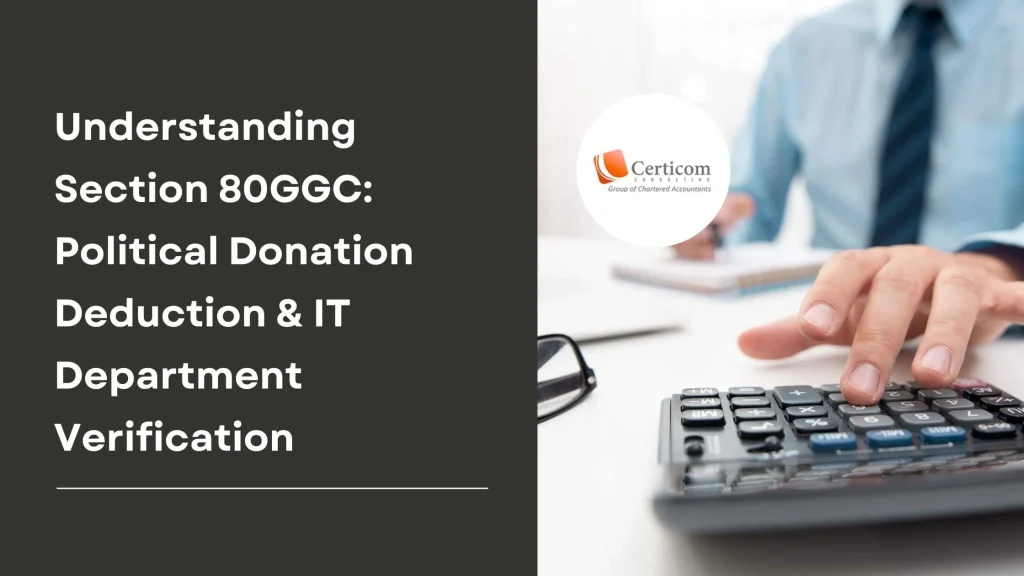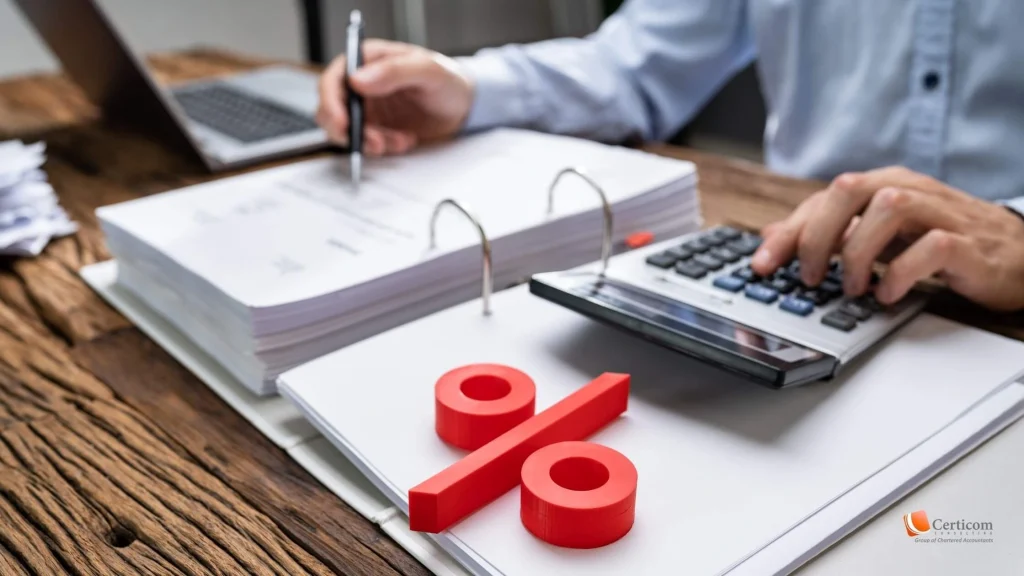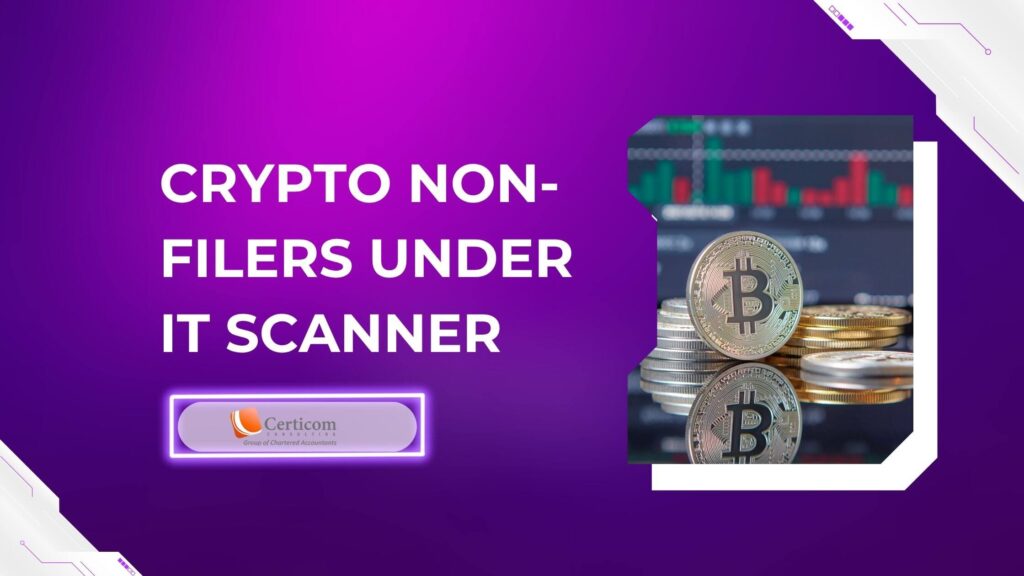Understanding Section 80GGC: Political Donation Deduction & IT Department Verification

Have You Received an SMS from the Income Tax Department? Here’s What to Do!
The Income Tax Department has started sending SMS notifications to salaried taxpayers who have claimed deductions under Section 80GGC in the last three assessment years (AY 2022-23, 2023-24, and 2024-25). This section of the Income Tax Act, 1961, allows individuals to claim deductions for contributions made to registered political parties or electoral trusts. However, such donations must be made via non-cash modes like cheques, demand drafts, or electronic transfers. This ensures transparency in political funding, as cash contributions are strictly disallowed.
Why the Scrutiny by the IT Department?
The Income Tax Department has identified around 90,000 salaried taxpayers who have incorrectly claimed deductions amounting to approximately ₹1,070 crore in their Income Tax Returns (ITRs). This scrutiny aims to verify the legitimacy of these claims and prevent fraudulent deductions.
Steps to Take If You Have Made a Political Donation
If you have made donations under Section 80GGC in the past three years, ensure that you have the following documents ready for verification:
Donation Receipt from the political party or electoral trust.
Bank Statement reflecting the transaction.
Acknowledgment Letter or Confirmation from the recipient.

What If Your 80GGC Deduction Claim Is Correct?
If your donation is legitimate and you have supporting documents, there is no cause for concern. No immediate action is needed, but it is advisable to keep your records organized for future reference.
What If You Made an Error in Claiming the Deduction?
If you mistakenly claimed a deduction under Section 80GGC without making an eligible donation, it is best to rectify the error by filing an updated return. Doing so before March 31, 2025, will help you avoid penalties and legal issues.
Understanding Section 80GGC: Deduction Limits & Eligibility
Section 80GGC enables individuals to claim a tax deduction for donations to political parties or electoral trusts. However, it is important to note the following eligibility criteria and limitations:
Who Can Claim the 80GGC Deduction?
Any individual taxpayer, including Hindu Undivided Families (HUFs), Associations of Persons (AOPs), or Bodies of Individuals (BOIs), can claim this deduction.
Companies, local authorities, and government-funded artificial juridical persons are not eligible.
The deduction can only be availed under the old tax regime.
What Contributions Are Eligible?
Donations to registered political parties (under Section 29A of the Representation of the People Act, 1951) or electoral trusts.
Payments must be made through banking channels (online transfers, credit/debit cards, cheques, or demand drafts). Cash donations are not eligible for deduction.
Deduction Limits Under Section 80GGC
100% of the donated amount is deductible, subject to the total income limit.
The deduction is part of Chapter VIA benefits, meaning it cannot exceed the taxpayer’s total income.
Key Differences Between Section 80GGB and Section 80G
Section 80GGB: Applicable to Indian companies making donations to political parties.
Section 80GGC: Applicable to individual taxpayers contributing to political parties.

Exceptions to the 80GGC Deduction
Donations made in cash or kind (e.g., gifts) are not eligible for tax deductions.
Individuals who have opted for the new tax regime cannot claim this deduction.
How to Claim a Deduction Under Section 80GGC
The process to claim the deduction is straightforward:
File your ITR under the old tax regime.
Declare the donation amount under Section 80GGC in the relevant section.
Submit supporting documents (receipt, bank statement, party’s PAN/TAN details) during filing.
If you are a salaried individual, inform your employer to include the deduction in Form 16.
To avail of the tax benefits under Section 80GGC, ensure that your donations are legitimate, well-documented, and compliant with tax regulations. Keeping detailed records will help avoid any complications during verification by the Income Tax Department. If you have made an erroneous claim, rectify it promptly to stay compliant and avoid penalties. Stay proactive and ensure your tax filings are in order for a hassle-free experience!
Related Post
Top 10 Tax Filing Rules for FY 2024-25
Crypto Non-Filers Under IT Scanner
Book A One To One Consultation Now For FREE
How can we help? *




